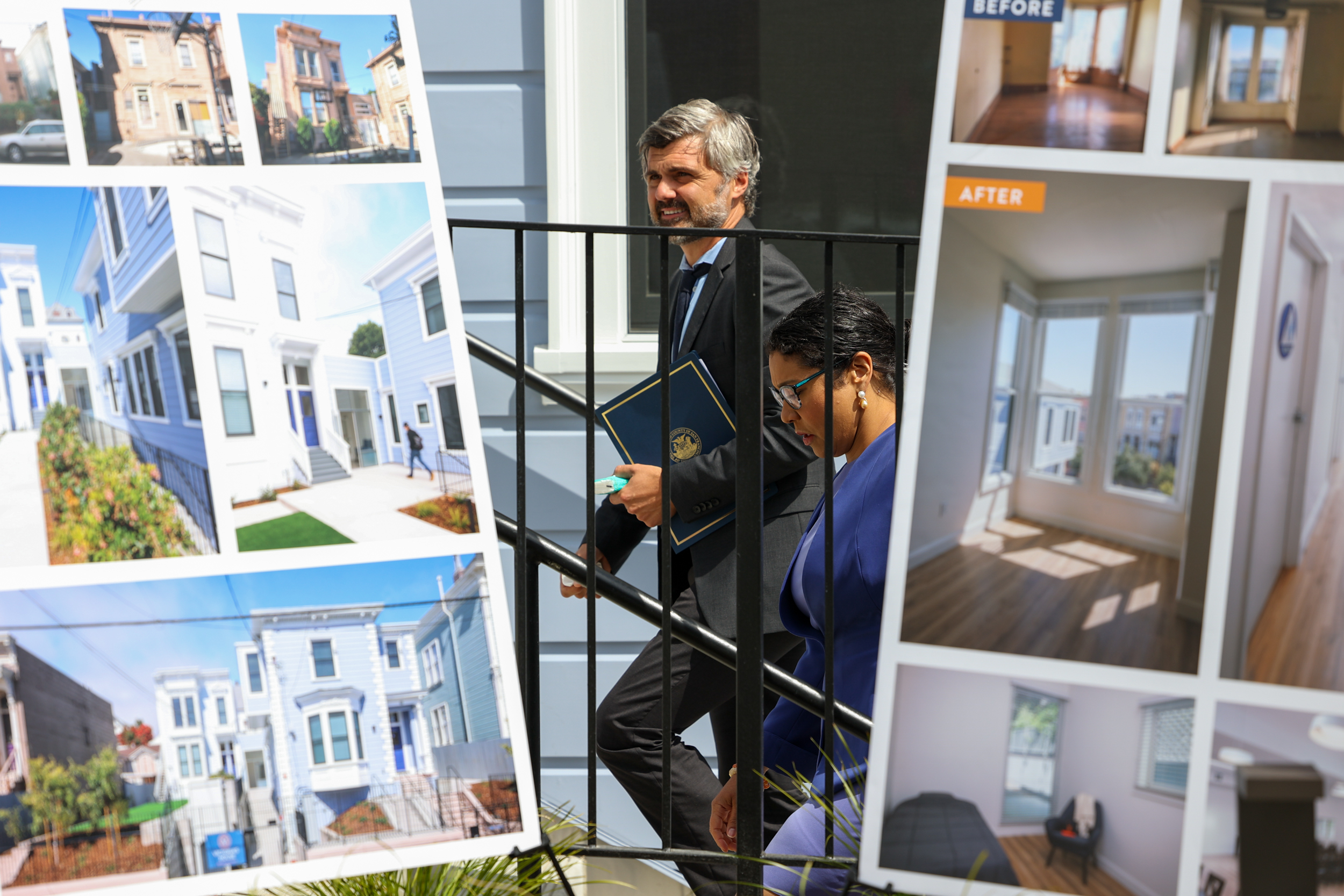Back before the Board of Supervisors for a second time, a bill to allow denser housing in San Francisco neighborhoods found a happy ending at City Hall.
Revived after a mayoral veto in July, the so-called fourplex bill allows four units on residential lots citywide, and six on corner lots, but without certain provisions its original opponents deemed unworkable. With 10 supervisors voting in favor—all but Board President Shamann Walton—and Mayor London Breed’s support, it passed on Tuesday and is unlikely to be vetoed again.
“The main thing we’ve done that’s important is get the mayor’s support,” said Supervisor Rafael Mandelman, the original sponsor of the fourplex bill.
The latest version passed out of the board’s Land Use Committee earlier this month with a notable change: Owners who want to build on their lots are required to have owned the property for at least one year, as opposed to the five years originally proposed by Supervisor Dean Preston. That change came at the request of Mayor London Breed, according to the bill’s author Supervisor Rafael Mandelman, and should prevent another veto.
Mandelman also split the bill in two this time around, tabling his idea to allow at least two units on every residential lot in response to criticism from Breed and others that the change would undermine state law.
Supervisor Matt Dorsey called the one-year ownership provision a “workable compromise.” Supervisor Catherine Stefani said she voted for the new version in the spirit of not letting “perfect be the enemy of the good.” Supervisor Ahsha Safaí also supported the bill, although he opposes including the ownership provision and thinks few homeowners may actually take advantage of the density change.
“This will be reserved for predominantly wealthy people,” Safaí told The Standard this week. “You have to have the ability to buy a piece of property and then sit on it for a year.”
Walton, the lone “no” vote, said he opposed the bill because it will lead to more gentrification, a position he’s held since Mandelman first floated his idea for the legislation last year.
The legislation could play a small role in the 2022 Housing Element, the city’s state-mandated plan to make room for 82,000 units by 2031. With that plan due early next year, the fourplex bill may come just in time.
SF YIMBY, which supports building housing at all affordability levels, supports the new split bill after initially opposing it due to feasibility concerns. Pro-affordable housing nonprofit Livable City also posted a letter of support for the legislation.
“While we do not expect this proposal will add much new housing, we are glad to see members of the Board being open to reforming our zoning laws,” SF YIMBY volunteer lead Robert Fruchtman wrote.
Dorsey and Safaí both also voted to submit an application to the state for pro-housing designation from the state’s department of Housing and Community Development department, the same body currently investigating San Francisco’s housing policies and practices.
It passed unanimously on Tuesday, but Safaí called the vote “symbolic” without further action by the city.
“It has no significance unless we get in compliance with state law and submit a compliant housing element,” Safaí said.
